Hello everybody, it’s time for Classic Recap number 2! This time I thought I would go for something a bit more upbeat my last one (Crime & Punishment, which you can read here and here) which in an unexpected twist turned out to be full of both crime AND punishment?? What a downer! Instead, I have decided to recap a novel by a nice 19th century lady, Mary Shelley, which I assume will be gentle and sweet, probably just about people going to balls and falling in love, etc.
That’s right people, I’m recapping Mary Shelley’s famous goth classic, Frankenstein! Like Dan Brown’s The Da Vinci Code, and the Bible, it’s one of the bestselling novels of all time, so it must be good, right? Let’s get straight into it…
Frankenstein: The Recap
The novel starts out with some letters written by a young man, Robert Walton, to his sister in England. Walton, who is off on a voyage far north, begins his first letter with an ominous line: ‘[y]ou will rejoice to hear that no disaster has accompanied the commencement of an enterprise which you have regarded with such evil forebodings’. Coincidentally, this is word for word what I texted my partner the last time I visited Centrelink in person.
Nothing much happens to Walton until one day, while his boat is stuck in ice, he spots a dog sledge driven by ‘a being which had the shape of a man, but apparently of gigantic stature’.
The sledge drives off into the distance, but the following day Walton sees another one, this time with a normal-sized man on board. This sledge is drifting aimlessly on a fragment of ice, and only one of his dogs remains alive; things are not looking good for the normal-sized man. Still, when Walton’s boat offers to save him, the man is like ‘[b]efore I come on board…will you have the kindness to inform me where you are bound?’, very much looking a gift boat in the mouth.
The man is Victor Frankenstein, and he not looking well: ‘his eyes have…an expression of wildness, and even madness…sometimes he gnashes his teeth’. At first, Victor is a bit cagey about how he found himself drifting around the north sea, but eventually he agrees to tell his story. ‘I have suffered great and unparalleled misfortunes,’ he begins, which is coincidentally also how I begin when I finally reach the service desk at Centrelink.
Frankenstein’s Story: Part 1
Victor starts telling Walton his entire life story, starting with his happy childhood in Geneva. He has two younger brothers, also an adopted sister, Elizabeth, who is a perfect child—‘docile and good tempered, yet gay and playful as a summer insect.’
When Victor turns seventeen, his mother tragically catches scarlet fever and dies. ‘I will endeavour to resign myself cheerfully to death’, she says, before expiring, which coincidentally is also what I say to the Centrelink recorded voice message when it informs me that their call centre is experiencing an unusually high volume of calls.
His mother’s death still fresh in his heart, Victor heads off to university in Ingolstadt, Germany, where he becomes obsessed with chemistry, natural philosophy, and anatomy. He takes a particular interest in decomposing bodies—‘I saw how the fine form of man was degrade and wasted; I beheld the corruption of death succeed to the blooming cheek of life; I saw how the worm inherited the wonders of the eye and brain’.
Victor is a star student, and after just a couple of years of study, he happens across an astonishing discovery: how to bestow animation on lifeless matter!
With this new power in his hands, Victor decides to create a human being out of some bits and pieces he’s scavanges from graves and slaughterhouses. It’s unclear why he goes for the meat-jigsaw approach, rather than just acquiring something pre-assembled—surely a fresh corpse isn’t that hard to come by in 1700s Europe? At any rate, he works day and night to put together a giant human-shaped creature, neglecting his friends and family and driving himself crazy trying to make it happen—something he later regrets on the grounds that:
[a] human being in perfection ought always to preserve a calm and peaceful mind, and never to allow passion or a transitory desire to disturb his tranquillity.
As someone who is still recovering from the several months I spent feverishly binge watching ten seasons of Vanderpump Rules last year, I hotly relate.
On a dreary night in November, Victor finally makes it happen: the creature he’s sewn together opens a dull yellow eye and convulsively wriggles its limbs. You would think Victor would be pleased, but he is in fact disgusted with his horrible creation. He rushes out of the room and…goes to bed. Arguably an unusual choice for someone who has just given life to a terrifying amalgam of partially decomposed flesh, but you do you, Victor Frankenstein.
He wakes to find the creature forcing its way in through his window, and again Victor runs away. He roams the streets in a panic until he happens to run into his childhood friend, Henry Clerval. The two of them head back to Victor’s apartment, where Victor promptly has a seizure and falls unconscious.
A ‘nervous fever’ follows, which lasts for several months. When he wakes up, he can’t even look at his old scientific equipment, and so he spends the year studying languages with Clerval and trying to forget about the creature. The following spring, he goes on a delightful walking tour of the countryside which fully cheers him up: ‘My…spirits were high,’ he writes, ‘and I bounded along with feelings of unbridled joy and hilarity.’
Alas, unbridled joy and hilarity were never going to last. He gets home to a letter bearing the news that his younger brother William has been murdered! The killer has yet to be apprehended, but the suspicion is that a robber has strangled William in order to steal a valuable miniature of their mother.
Victor heads home to Geneva for the first time in six years. He arrives late, and the gates of the city have closed, so he decides to visit the site of his brother’s murder. It’s a terribly stormy night—‘vivid flashes of lightning dazzled my eyes, illuminating the lake, making it appear like a vast sheet of fire’, he writes; honestly the imagery in this book is something to behold—when, suddenly, Victor spots a figure in the gloom. Uh oh. It’s his creature! The gigantic fellow speeds away, scaling the mountain and disappearing at the summit. Though he has no evidence, Victor immediately becomes convinced that it was this creature who murdered William.
The next morning he arrives home and his brother Ernest (not the murdered one) informs him that William’s murderer has been caught. Apparently Justine, a servant girl, has been found with the stolen miniature on her person. Victor is convinced that Justine has been wrongly accused, and Ernest is like, okay, well, she’s being tried today so I guess we’ll find out?
At this point, I figuratively spat out my literal tea, because while I can accept that Victor sewed together a monster out of some old bones and pork chops and imbued it with life, expecting me to believe that a person accused of murder could be caught and tried before a court of law in the space of a few days? Please. Either the Swiss judicial system of the 1700s was stunningly efficient, or Mary Shelley did NOT do much research.
Despite denying everything, Justine is found guilty, and is sentenced to death. Victor, who still thinks his creature is the true assassin, feels pretty bad about it. In fact, he claims that he feels worse about it than Justine herself: ‘[t]he poor victim, who on the morrow was to pass the dreary boundary between life and death, felt not as I did, such deep and bitter agony.’ Uh, sure, Victor.
Justine is executed, and Victor continues to be gloomy: ‘a weight of despair and remorse pressed on my heart…all sound of joy or complacency was torture to me; solitude was my only consolation—deep, dark, death-like solitude.’ I imagine at this point he is probably listening to a lot of Joy Division, possibly wearing eyeliner.
To cheer him up, Victor’s father suggests they all go on a jaunt to the valley of Chamonix to see the sublime scenery. I have googled this place and can confirm it would cheer me up to go there:
One day, Victor decides to go on a solo trip to see the glacier and take in Mont Blanc. The majestic views temporarily lift his spirits…until he spots a man moving towards him at ‘superhuman speed’—yes, it’s the creature. Victor is like, ‘do you dare approach me? and do you not fear the fierce vengeance of my arm wreaked on your miserable head?’, which coincidentally is also what the clerk at Centrelink sai—okay, yes, you’re right, I’ve made that joke enough.
The creature is surprisingly eloquent in his reply ‘I expected this reception…All men hate the wretched; how then I must be hated, who am miserable beyond all living things?’ Honestly, between him and Victor I am getting a bit weary of their competitive depression.
The creature makes a Victor a fairly alarming offer: ‘If you will comply with my conditions, I will leave [humanity] at peace; but if you refuse, I will glut the maw of death until it be satiated with the blood of your remaining friends.’ I’m not entirely sure what ‘glutting the maw of death’ involves but I suspect it’s not good?
The Creature’s Story
The creature claims that it is simple loneliness that has turned him into a fiend. ‘Make me happy,’ he says, ‘and I shall again be virtuous.’ There is a whiff of the incel logic about all this, but I suppose we should hear him out.
The creature tells Victor his life story, which begins with Victor deserting him immediately after giving him life. He lives in the forest for a while, but is attacked by angry villagers when he goes looking for food. Afraid, he decides to hole up in a remote hut, next door to a nice family of three—a young man and woman and their blind father.
The neighbours are beautiful and loving with each other, and the creature develops an attachment to them, thinking of them as his protectors—despite the fact that they don’t know he exists. From eavesdropping on them, he learns human language, and from a pile of books he finds in the woods he also learns to read.
At this point, he is having a lot of existential anguish, wondering what he is, and why he exists. When he sees his own reflection in a pond he is ‘filled with the bitterest sensations of despondence and mortification.’ We’ve all been there, Frankenstein’s creature! Still, he thinks that despite his grotesque appearance, maybe he deserves some kindness and sympathy—and so he decides to make friends with the neighbours. Oh dear. I fear this will not turn out well.
The creature drops around to see the old blind man, who is unaware of his frightening appearance, and so is initially sympathetic and friendly. However, when the kids show up, things take a turn. The daughter faints, the son attacks him; the creature tells Victor that at this point he could have ‘destroyed the cottage and its inhabitants, and…glutted myself with their shrieks and misery’, but in an impressive show of self-restraint he instead goes off into the forest where he howls, tears up some trees, and declares everlasting war on the human species (which, coincidentally, is also what I usually do after a visit to Centrelink) (sorry, that was the last one, I swear).
The next day, the creature returns to the neighbour’s cottage and, still in a huff, burns it to the ground. He then roams the country in a depression, until one day he finds himself near Geneva, where he spots a little boy. He thinks maybe the kid is young enough not to have ‘imbibed a horror of deformity’, and that the two of them could be pals. Unfortunately, the boy has definitely imbibed of the horror; when the creature seizes him, he calls him an ugly wretch and threatens to tell his father, Mr Frankenstein. The creature is like—wait, you belong to Frankenstein?? My original enemy?? Then you’ll be my first victim, mwahahahaha—and proceeds to strangle him to death. This child murder is a pretty uncool move; not sure the ‘I was lonely’ defence would get him far in a court of law for that one.
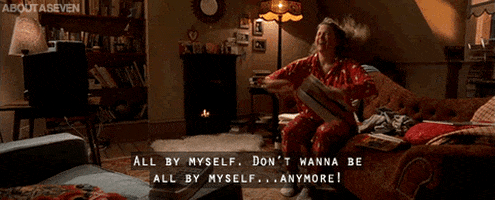
The creature then takes the miniature of Frankenstein’s mother that the child has been carrying around with him. Furious that he is ‘for ever deprived of the delights that such beautiful creatures could bestow’ (told you he was an incel!), he decides to plant the miniature on Justine, who happens to be passing by—ultimately resulting in her being convicted and executed for the child’s murder.
After relating all this to Frankenstein, the creature tells him that what he really wants is—
—well, probably, I mean…we all want that. But the thing the creature says he wants is, of course, a love interest:
I am alone, and miserable; man will not associate with me; but one as deformed and horrible as myself would not deny herself to me. My companion must be of the same species, and have the same defects. This being you must create.’
Yes, as Jane Austen would have it, a grotesque abomination in possession of a rap sheet must be in want of a wife. The creature promises that if Frankenstein makes him a lady pal, the two of them will disappear into the ‘vast wilds of South America’, and he will never hear from him again.
Frankenstein’s Story: Part 2
Frankenstein is at first moved by the creature’s story, and consents to his request. He heads back to Geneva, but cannot make himself begin the work. ‘I was unable to overcome my repugnance to the task which was enjoined me’, he says, which will be a familiar sentiment for anyone who has ever had to fill in their own tax return while working as a freelancer.
His dad suggests that maybe he should think about getting married…perhaps to his adopted sister, and biological cousin, Elizabeth. It’s all very House Targaryen, but Victor is into it—although first he decides he has to deal with his creature problem.
He decides to travel to England, funded by his Dad, as he’s figured out that the knowledge of some English philosopher is essential for his project of creating a female creature (basically it’s an academic travel junket). We get a little travelogue of his journey through Germany, England and Scotland—Victor is gloomy the entire time, constantly moaning about how wretched he feels, but fortunately he’s travelling with his friend Clerval, who—unlike Victor—is lovely and cheerful and capable of enjoying the scenery.
In Scotland, Victor leaves Clerval to travel far north to the Orkneys, where he’s determined to complete the female creature. It’s a horrible job and he gets more depressed every day—he’s worried that the new creature might be even more malignant than the first, or that she might reject the original creature and make him angrier. Worse, she might accept him, they might have children, and ‘a race of devils would be propagated upon the earth’. All valid concerns!
As he’s thinking about all these things one night, the creature himself shows up. Victor, with sudden conviction, tears to pieces the female creature he was working on, and swears that he will never create another. The OG creature is not pleased. ‘[Y]ou believe yourself miserable,’ he says to Victor, ‘but I can make you so wretched that the light of day will be hateful to you…remember, I shall be with you on your wedding night.’
The creature disappears, and Victor cleans up his lab and sails out on the ocean to dump the remains of his half-finished creature. He gets caught up in rough waters and is almost lost at sea, but eventually makes his way back to land, where he is immediately arrested for a murder that took place the previous night. They take him to see the corpse, and—oh no! It’s lovely Henry Clerval!
In a classic Victor move, he falls into a fever for two months. When he re-emerges, the murder charges are dropped, and he’s allowed to go home.
Elizabeth writes to him to check if he’s still keen on getting married (this woman is either very patient, or very desperate). He reassures her with the line: ‘to you alone do I consecrate my life’—which would be quite romantic if he didn’t follow it up with: ‘I have one secret…when revealed to you…will chill your frame with horror…I will confide this tale of misery and terror to you the day after our marriage’. Hm. I have to say, if my financé indicated he had a secret that would chill my frame with horror, I might start investigating venue cancellation fees—but Elizabeth is apparently fine with it.
The creature has threatened that he will be with Victor on his wedding night, and so Victor starts carrying pistols and a dagger around. On the day of his wedding, he and Elizabeth enjoy a happy afternoon, but in the evening he starts getting nervous. He decides to separate from Elizabeth until he can figure out what the creature is up to, so she goes to bed and he patrols the halls, until he hears a scream…and…oh dear.
I’m sorry to have to report this, but Elizabeth is no longer gay and playful as a summer insect. She is dead—strangled by the creature.
Victor chases the creature and shoots at him with his pistol, but he gets away. There’s not much left to do but to check on his father, who has happily not been murdered, but the news of Elizabeth’s death breaks his spirit, and a few days later, he too dies. Honestly, this book is sadder than the bee scene in My Girl.
Victor commits the rest of his life to destroying the creature…which is how he ended up floating on a sledge on a chunk of ice, pursuing the creature to the north pole.
Walton’s story
The narrative here reverts back to Walton’s letters to his sister. He writes that his ship is stuck in ice and he’s not sure he will survive. The crew ask him to promise that if they get free, they can return southward. At this point, Victor Frankenstein, apparently not one to learn from the mistakes of his past, jumps in and exhorts them to continue to the north: ‘Are you so easily turned from your design? Did you not call this a glorious expedition?’ This is a particularly annoying thing for him to say, given that if he had been a bit more easily turned from his designs—ie, if he hadn’t been so obsessively set on creating life, giving animation to lifeless matter, without thinking about the consequences—all his beloved friends and family would still be alive right now.
Happily, the crew are unconvinced by his spiel (apparently they’re not particularly interested in the advice of a man whose judgment has led him to floating on a bit of ice in the frozen north, vainly chasing a monster of his own creation, and waiting to die). Walton, not wanting to force the issue, agrees to return south.
At this point, Victor, who has been ailing, takes a turn for the worse, and dies. On his deathbed, he advises Walton to ‘[s]eek happiness in tranquillity, and avoid ambition’, but then immediately backtracks—‘Yet why do I say this? I have myself been blasted in these hopes, yet another may succeed.’

That night, Walton enters Victor’s cabin and is shocked to find the creature standing there. He is grieving over his dead creator, and longing for his forgiveness. Walton calls the creature a hypocrite: ‘[y]ou throw a torch into a pile of buildings, and when they are consumed you sit among the ruins, and lament the fall.' The creature, though, disagrees—he sees himself as a fallen angel, a virtuous creature driven to murder by a life of abandonment and rejection. I do like that the book itself doesn’t take a firm position on this—it’s very much left to the reader to form their own opinion (my opinion is that even lonely people shouldn’t strangle children).
The creature leaves, promising never to hurt another person, and the novel ends with him drifting away on his ice-raft into the darkness and distance, never to be heard from again…much like me, after I emerge blinking from the Centrelink office, a broken and deformed creature, with little to look forward to but death itself.
THE END
Thanks for reading! If you enjoyed this recap, and want to support the newsletter, sharing posts is one of the best ways to do it. Next time I am thinking of doing The Plague by Albert Camus (thanks to the excellent Beth Spencer for the suggestion)—let me know if you have any other classic novels you would like me to recap!




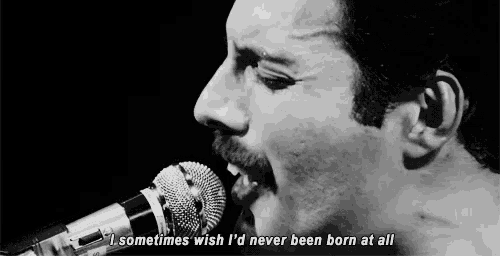
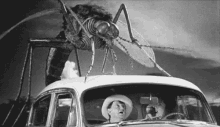
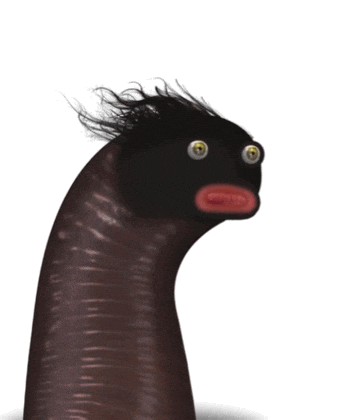



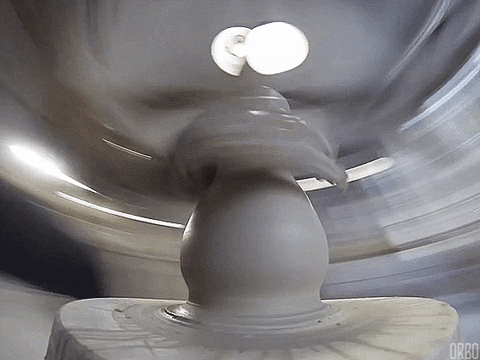


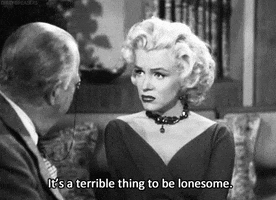

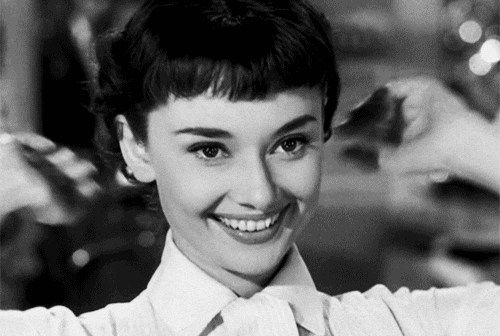
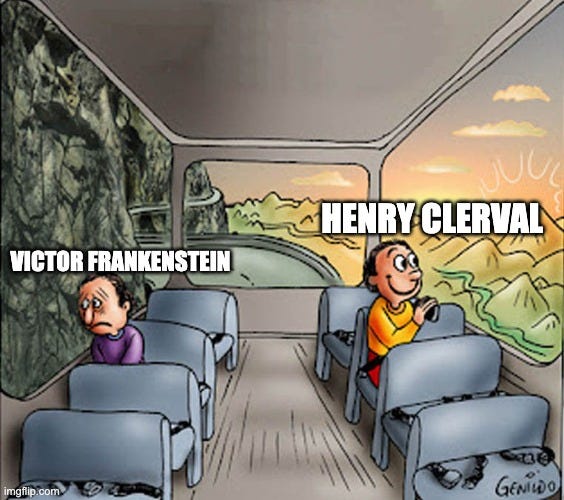


I laughed out loud! I was hungry, but the reference to the meat-jigsaw has put me off somewhat. Can I suggest Anna Karenina for a recap? I slogged through 500 pages about 20 years ago and now remember nothing but would love to hear how it ends (without actually trying to read it agin, of course!) xxs
This gave me a good laugh. Thanks Eleanor!